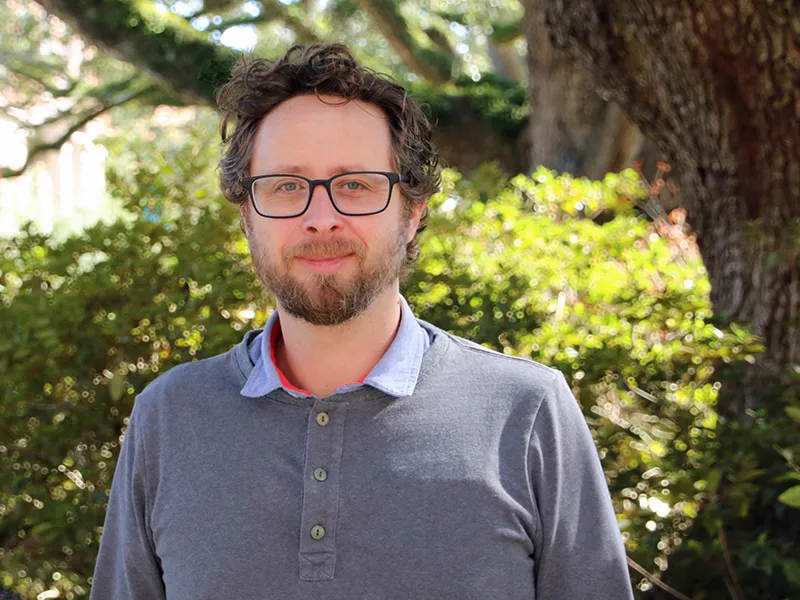
In the realm of cutting-edge interdisciplinary research, Tulane Liberal Arts Associate Professor of Philosophy and Director of Cognitive Studies Daniel Burnston is part of a collaborative team breaking new ground in studying cognition. Burnston’s group received $165,000 in funding from the Research Corporation for Science Advancement’s (RCSA) Scialog: Molecular Basis of Cognition initiative to spearhead a project titled Mapping Inner Worlds: Representational Spaces and Mental Life.
Collaborating with Psychology Professor Wilma Bainbridge from the University of Chicago and Psychology Professor Bob Wilson from the University of Arizona, the team will explore the organization of categories and knowledge in the mind and brain. It is frequently hypothesized that mental categories for objects are organized into a “space,” with similar categories closer together and distinct categories further apart. But there are many ways the brain can represent objects—perceptually, conceptually, and linguistically. This research will use cutting-edge experimental and computational methods to tease apart the different spaces and show how individuals and groups categorize the world differently.
“Our lives are determined by how we categorize and interact with the world around us, but our mental categories are complex and multifaceted,” Burnston explains. “To understand this complexity, we need detailed experimental tools, computational modeling approaches, and philosophical insight. Our project will bring those perspectives together to advance our understanding of the mind.”
More than just an RCSA initiative, Scialog—a fusion of "science + dialog"—is a catalyst for accelerating breakthroughs and fostering intensive interdisciplinary conversations. Beyond financial support, the Scialog initiative provides an environment where early career faculty from institutions across the country can share big ideas and push the boundaries of their fields.
“The Scialog environment is totally unique, in that it brings together high-level theorists and experimentalists from multiple disciplines and puts them in close conversation about big-picture questions,” continued Burnston. “This breaks down disciplinary boundaries, encourages combining distinct methodologies, and opens up space for creative solutions to major theoretical issues in understanding the mind."
This is the second year that Burnston has received funding from Scialog. His first project focused on how brain systems are organized to implement distinct behaviors depending on context. His group analyzed whether populations of brain cells could be described via a topological structure, and whether organized behavior could be the result of predictable trajectories through that structure.
The Scialog initiative is also sponsored by the Frederick Gardner Cottrell Foundation, and the Canadian Institute for Advanced Research (CIFAR), with additional award funding from The Kavli Foundation, the Walder Foundation, and the Azrieli Foundation.

